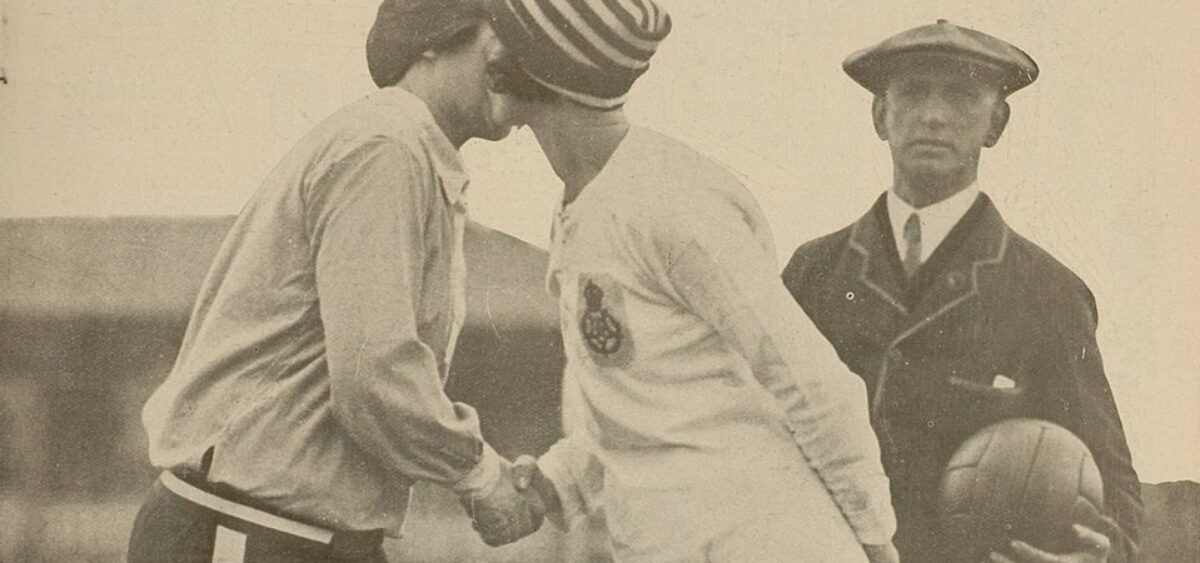
Girls used to be so good at kicking pigskins, and audiences adored them so much, that men felt threatened. So they destroyed women’s football.
Future generations would call this tragedy World War I, but back then it was just a war. A calamitous, heinous conflict that required men and boys to put on their uniforms and heavy boots, strap on their rifles and march ahead. ‘The war to end all wars’ summoned 70 million people; five million from the United Kingdom alone, 700,000 of which were to never come back to Yorkshire, Kent, Oxford, Manchester, London, and countless other cities, towns and villages. They would never see their home towns again. Over 1.5 million did come back, wounded and traumatized.
In men’s shoes
In the early 20th century, most women were housewives. Indeed, the suffragette movement was powerful and committed, but it was met with great resistance and still remained a niche initiative. Its most radical wing was ready to fight by hook or by crook – some society members would go as far as planting bombs. The government hit back, ordering forceful feeding of the imprisoned suffragists. Eventually, the movement gained its first martyr. During the 1913 Epsom Derby, Emily Davison was trampled to death after she ran onto the track to pin the suffragette banner on the king’s horse.
However, once men had gone to the trenches, suffragists changed their tactics. In order to fight for their rights, women needed to have a country. They decided to contribute to warfare by taking on men’s roles, abandoned by their brothers and husbands marching across Europe. Emmeline Pankhurst – the leader of the suffragette movement – insisted that once women took over men’s duties, politicians would no longer have any arguments against giving them the right to vote.
Thousands of women began applying for jobs as tram drivers and welders; others wanted to shovel coal and distribute milk and mail (also by car). The only activity they





